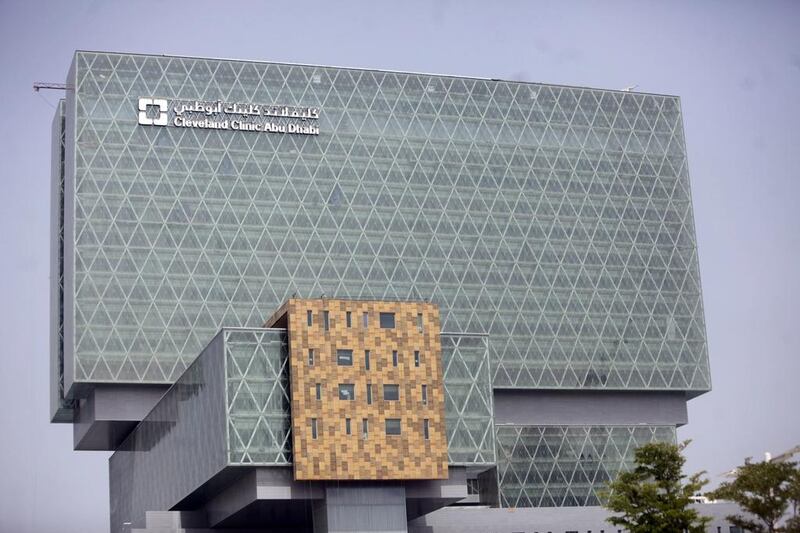Cleveland Clinic Abu Dhabi has almost tripled its capacity since the beginning of last year and it dealt with more than 337,000 patient encounters in 2016.
It employs more than 2,900 caregivers and has served 51,673 patients since opening its doors, its two-year "state of the clinic" report has shown.
Of the total patients, 75 per cent were UAE nationals, 23 per cent were expatriates and 2 per cent were international patients.
Last year its team received 285,000 outpatient visits and more than 39,000 emergency visits, completed more than 9,200 surgical cases and had 5,400 hospital admissions at a facility that features more than 30 medical and surgical specialties.
The hospital reached 250 beds by the end of last year and is targeting a capacity of 364 beds by end of this year.
Hospital chairman Waleed Al Mokarrab Al Muhairi said: “2016 was a landmark year for Cleveland Clinic Abu Dhabi, as we built upon our commitment to the people of the UAE to deliver compassionate, patient-centred care of the highest quality.
"With a strong foundation now in place, Cleveland Clinic Abu Dhabi can now continue to grow and serve more patients within Abu Dhabi, as well as the UAE and across the region.
“I am confident that by complementing the existing healthcare infrastructure that the wise leadership of the UAE has put in place, and understanding our role in the wider national strategy, we will be able to succeed in delivering sustainable, high-quality healthcare for the whole country."
Cleveland is one of five hospitals equipped to handle organ donations that will begin a programme of organ transplants from deceased donors after a change in the law last year.
Medics will ask the families of patients who die in intensive care if their relative would donate his or her organs after death. The move is part of a major drive to establish a national transplant programme.
The direct approach initiative takes advantage of the new law that allows hospitals to remove organs from dead patients. Before the change such a move would have been illegal.





